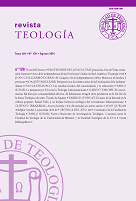The Congress Of Independence (1816). Memory of Facts and People
Palavras-chave:
Congreso de Tucumán, Bicentenarios Patrios, Movimiento Independentista, Declaración de la Independencia ArgentinaResumo
In this article the author offers a historical view of the people and the ideas around the celebration of the Congress of Tucumán of 1816, known as the “Independence Congress”. He highlights particularly the European context of the time and specially the situation in Spain, which contributed to the consolidation of the Río de La Plata independence movement. At the same time the author analyses the critical situation (internal and external) these provinces (by the time divided in “intendencias”) went through after the May Revolution and the failed attempt of political organization promoted by the Assembley of the year XIII. These circumstances indicate the historical importance of the Congress. Indeed the Congress by discussing the form of government established the fundamental principles of representative democracy and popular sovereignty and led to a new political order replacing the Bourbon absolutist monarchy.
Downloads
Downloads
Publicado
Como Citar
Edição
Secção
Licença
Direitos de Autor (c) 2018 Teología

Este trabalho encontra-se publicado com a Licença Internacional Creative Commons Atribuição-NãoComercial-CompartilhaIgual 4.0.














 Teología
Teología